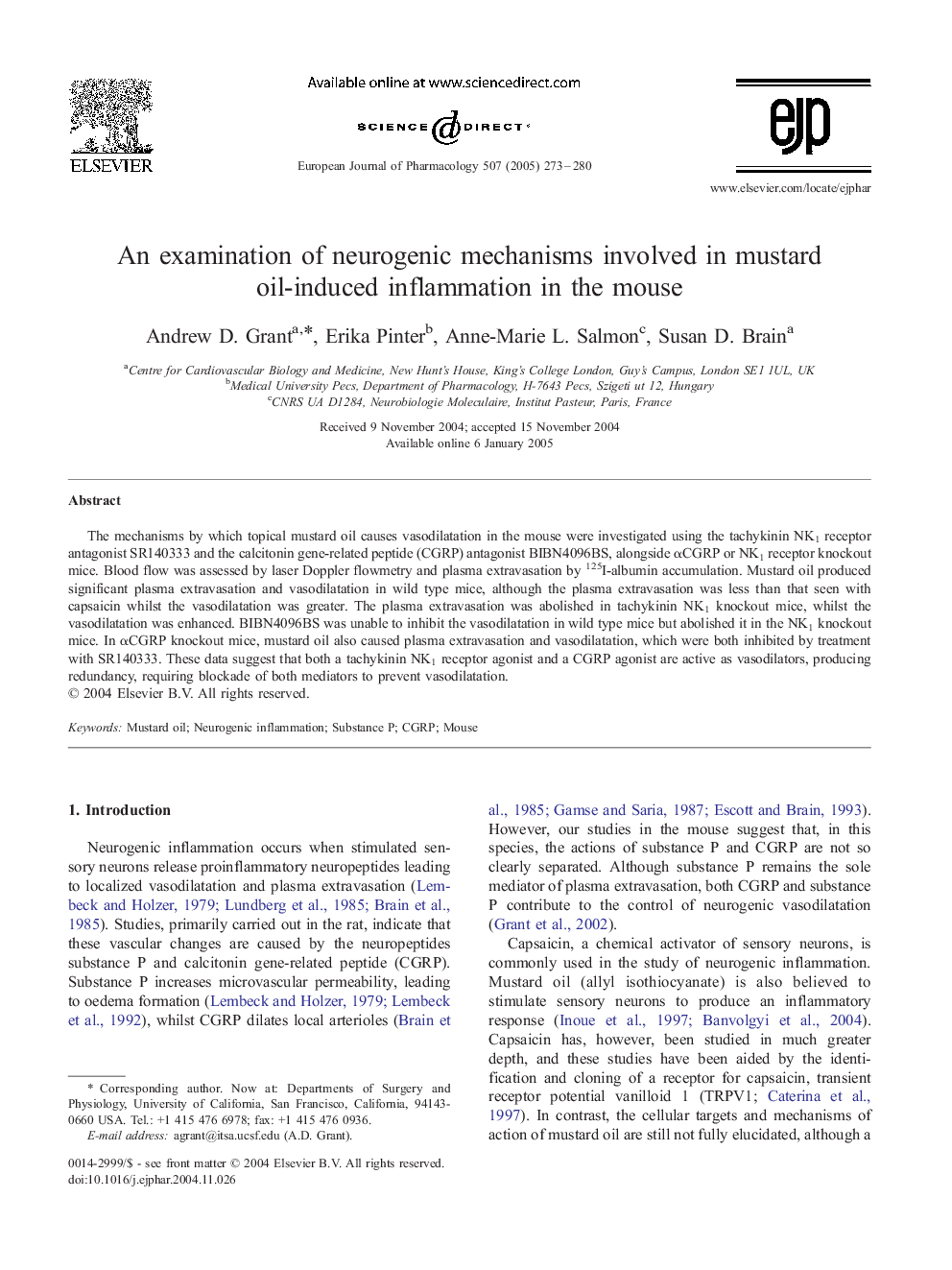| Article ID | Journal | Published Year | Pages | File Type |
|---|---|---|---|---|
| 9921580 | European Journal of Pharmacology | 2005 | 8 Pages |
Abstract
The mechanisms by which topical mustard oil causes vasodilatation in the mouse were investigated using the tachykinin NK1 receptor antagonist SR140333 and the calcitonin gene-related peptide (CGRP) antagonist BIBN4096BS, alongside αCGRP or NK1 receptor knockout mice. Blood flow was assessed by laser Doppler flowmetry and plasma extravasation by 125I-albumin accumulation. Mustard oil produced significant plasma extravasation and vasodilatation in wild type mice, although the plasma extravasation was less than that seen with capsaicin whilst the vasodilatation was greater. The plasma extravasation was abolished in tachykinin NK1 knockout mice, whilst the vasodilatation was enhanced. BIBN4096BS was unable to inhibit the vasodilatation in wild type mice but abolished it in the NK1 knockout mice. In αCGRP knockout mice, mustard oil also caused plasma extravasation and vasodilatation, which were both inhibited by treatment with SR140333. These data suggest that both a tachykinin NK1 receptor agonist and a CGRP agonist are active as vasodilators, producing redundancy, requiring blockade of both mediators to prevent vasodilatation.
Related Topics
Life Sciences
Neuroscience
Cellular and Molecular Neuroscience
Authors
Andrew D. Grant, Erika Pinter, Anne-Marie L. Salmon, Susan D. Brain,
